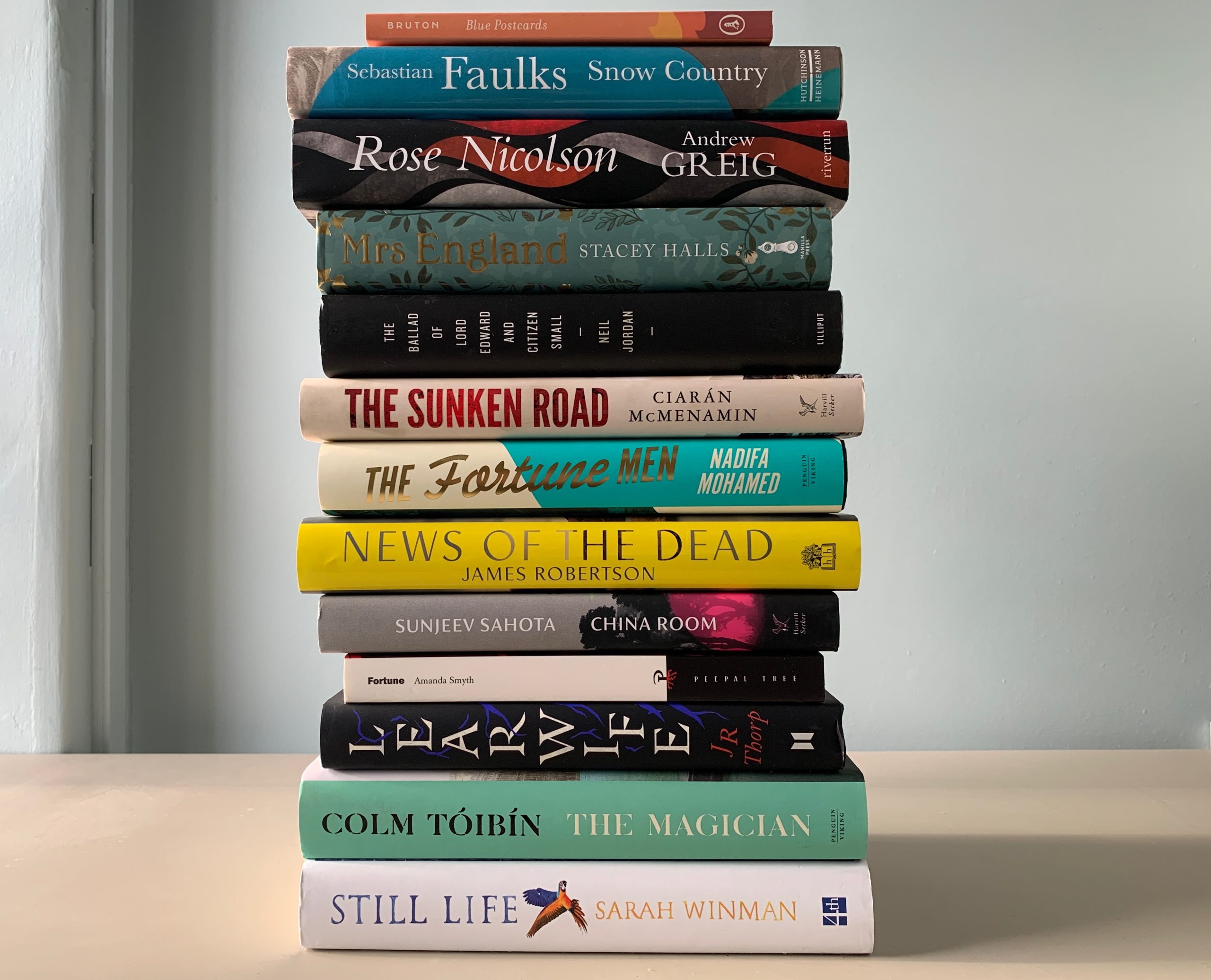
The Walter Scott Prize for Historical Fiction, which celebrates outstanding historical novels published in the UK, Ireland and the Commonwealth, has announced its 2022 longlist.
Thirteen novels are in contention for the £25,000 prize, with settings spanning from the 8th century BC up to the 1960s, and from all four nations of the United Kingdom to Ireland, France, Germany, Italy, Austria, the West Indies and the Punjab.
The longlist is:
- BLUE POSTCARDS Douglas Bruton (Fairlight Books)
- SNOW COUNTRY Sebastian Faulks (Hutchinson Heinemann)
- ROSE NICOLSON Andrew Greig (Riverrun)
- MRS ENGLAND Stacey Halls (Manilla Press)
- THE BALLAD OF LORD EDWARD AND CITIZEN SMALL Neil Jordan (Lilliput Press)
- THE SUNKEN ROAD Ciarán McMenamin (Harvill Secker)
- THE FORTUNE MEN Nadifa Mohamed (Viking)
- NEWS OF THE DEAD James Robertson (Hamish Hamilton)
- CHINA ROOM Sunjeev Sahota (Harvill Secker)
- FORTUNE Amanda Smyth (Peepal Tree Press)
- LEARWIFE J.R Thorp (Canongate)
- THE MAGICIAN Colm Tóibín (Viking)
- STILL LIFE Sarah Winman (Fourth Estate)
“We may have been more confined in recent years, but the same cannot be said for our imaginations. This year’s longlist is as globetrotting as it is time-travelling – a testament to the power of great fiction to explore less-familiar worlds, regardless of physical travel constraints. Ambition, originality and innovation are what we look for, and are what we found in abundance among the submissions this year – along with the fine writing that is a prerequisite, said the judges, chaired by Katie Grant.
Books from Scotland to the Punjab
The books on the longlist sweep readers through Europe and beyond, taking in sixteenth-century Scotland; inter-world war Vienna, Paris and Northern Ireland; bomb-blasted WW2 Tuscany; and on to the jostling Cardiff docks of the 1950s and London’s smog-laden East End: from ancient Scottish Glens and isolated Yorkshire mansions to a stifling room in 1929 Punjab; and from the oil-hungry Trinidad of the 1920s to the battlefields of the American War of Independence.
Characters are both imagined and borrowed from the pages of history: writers Thomas Mann and EM Forster; French artist Yves Klein; an unheard voice from Shakespeare’s King Lear; eighteenth-century aristocrat-turned-Irish-
Historical fiction genre
First awarded in 2010, and sponsored by the Duke and Duchess of Buccleuch, the Walter Scott Prize for Historical Fiction honours the inventor of the historical fiction genre, Sir Walter Scott, whose 250th anniversary celebrations continue into 2022. The Prize judging panel comprises Katie Grant (chair), Elizabeth Buccleuch, James Holloway, Elizabeth Laird, James Naughtie and Kirsty Wark.
The winner receives £25,000, and each shortlisted author is awarded £1,500, setting the Walter Scott Prize amongst the richest fiction prizes in the UK.
The shortlist will be announced in April, and the winner announced in mid-June at the Borders Book Festival in Melrose, Scotland.



